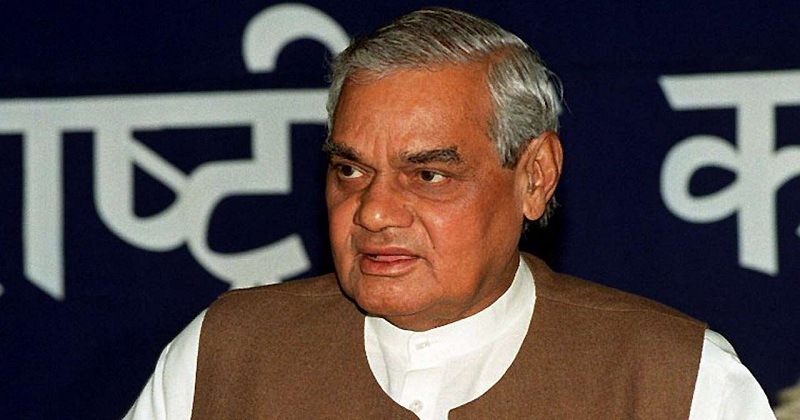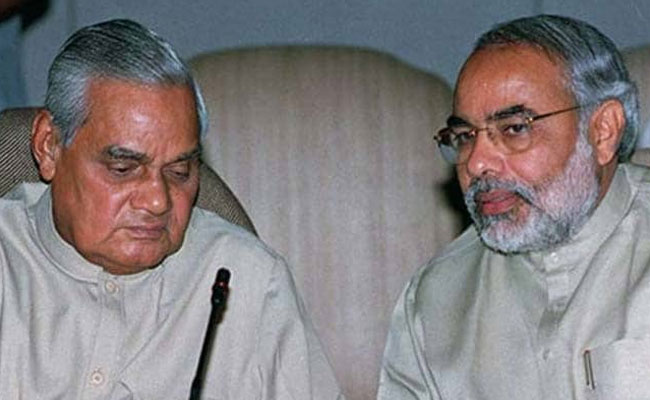
Atal Bihari Vajpayee was an Indian politician who thrice served as the Prime Minister of India, first for a term of 13 days in 1996, for a period of eleven months from 1998 to 1999, and then for a full term from 1999 to 2004.
He was a member of the Indian Parliament for over four decades, being elected to the Lok Sabha, the lower house, ten times, and twice to the Rajya Sabha, the upper house. He served as the Member of Parliament for Lucknow, Uttar Pradesh until 2009 when he retired from active politics due to health concerns. Vajpayee was among the founding members of the erstwhile Bharatiya Jana Sangh which he also headed from 1968 to 1972. He was the Minister of External Affairs in the cabinet of Prime Minister Morarji Desai.
When the Janata government collapsed, Vajpayee restructured the Jana Sangh into the Bharatiya Janata Party in 1980. He was the first Indian prime minister who was not a member of the Indian National Congress party to have served a full five-year term in office.
Also Read : HD Kumaraswamy announces Rs. 200 Crore for flood relief work
Interesting facts about this erudite politician:
# He was born in a humble school teacher’s family on December 25, 1924, in Gwalior Madhya Pradesh
# Atal Bihari Vajpayee entered politics during the Quit India movement in 1942.
# In the 2nd General Elections of 1957, he contested for the first time from two constituencies- Mathura and Balrampur in Uttar Pradesh. He lost the Mathura seat to Raja Mahendra Pratap and won the Balrampur seat.
# He and his father went to the same Law College (DAV College in Kanpur) together for their Law studies and they even shared the same room in the hostel.

# He has done his graduation and post graduation in Political Science from Victoria College in Gwalior.
# In 1977, he was appointed the External Affairs Minister in Morarji Desai Government
# On 13 May 1998, he led the successful nuclear test named- Operation Shakti at Pokhran in Rajasthan and put India in the league of the world’s elite nuclear club.
# He became the Prime Minister of India for three times- first time on 16 May 1996 for 13 days only, second time on 19 March 1998 for 13 months and third time on 13 October 1999 for a full 5-year term.
# On 13 May 1998, he led the successful nuclear test named- Operation Shakti at Pokhran in Rajasthan and put India in the league of the world’s elite nuclear club.
# The Vajpayee government lost the vote of confidence by one vote on April 17, 1999.
# He became the first person to speak in Hindi at the United Nations.
# In order to build a strong relation with Pakistan, he took a bus journey named- Sada-e-Sarhad to Lahore on 19 February 1999.
# He remained an M. P. (Member of Parliament) for 47 years (11 times from Lok Sabha and 2 times from Rajya Sabha).
# His health started deteriorating in the late 2000, He underwent a knee replacement surgery in 2001 and suffered a stroke in 2009, which impaired his speech.
# On 25 December 2014, Government of India announced to honor him with India’s highest Civilian Award– Bharat Ratna and in a special gesture, President of India conferred him the award at his residence on 27 March 2015.

Post Your Comments